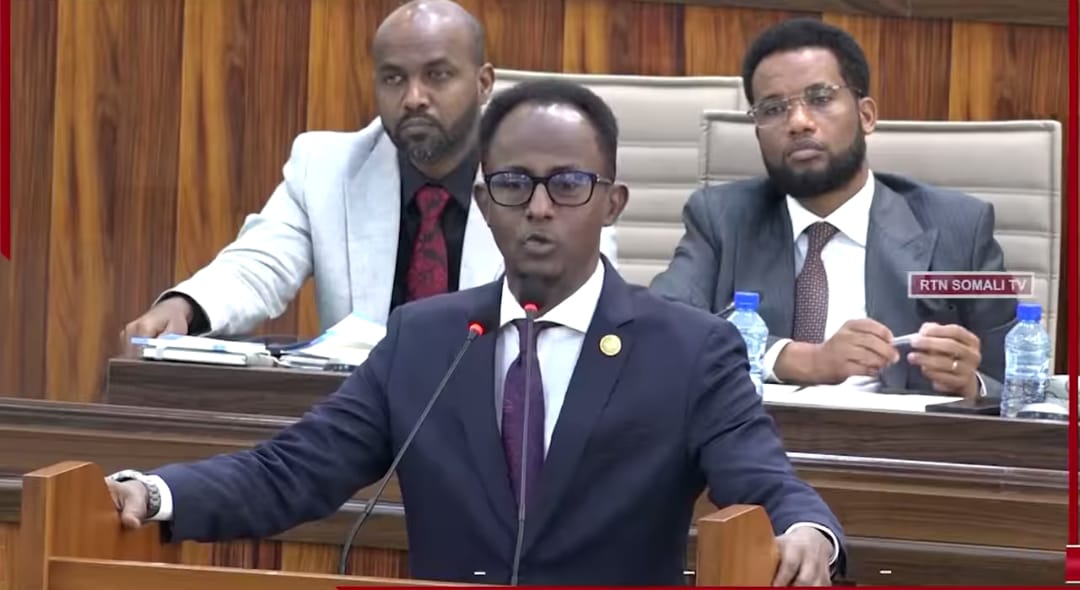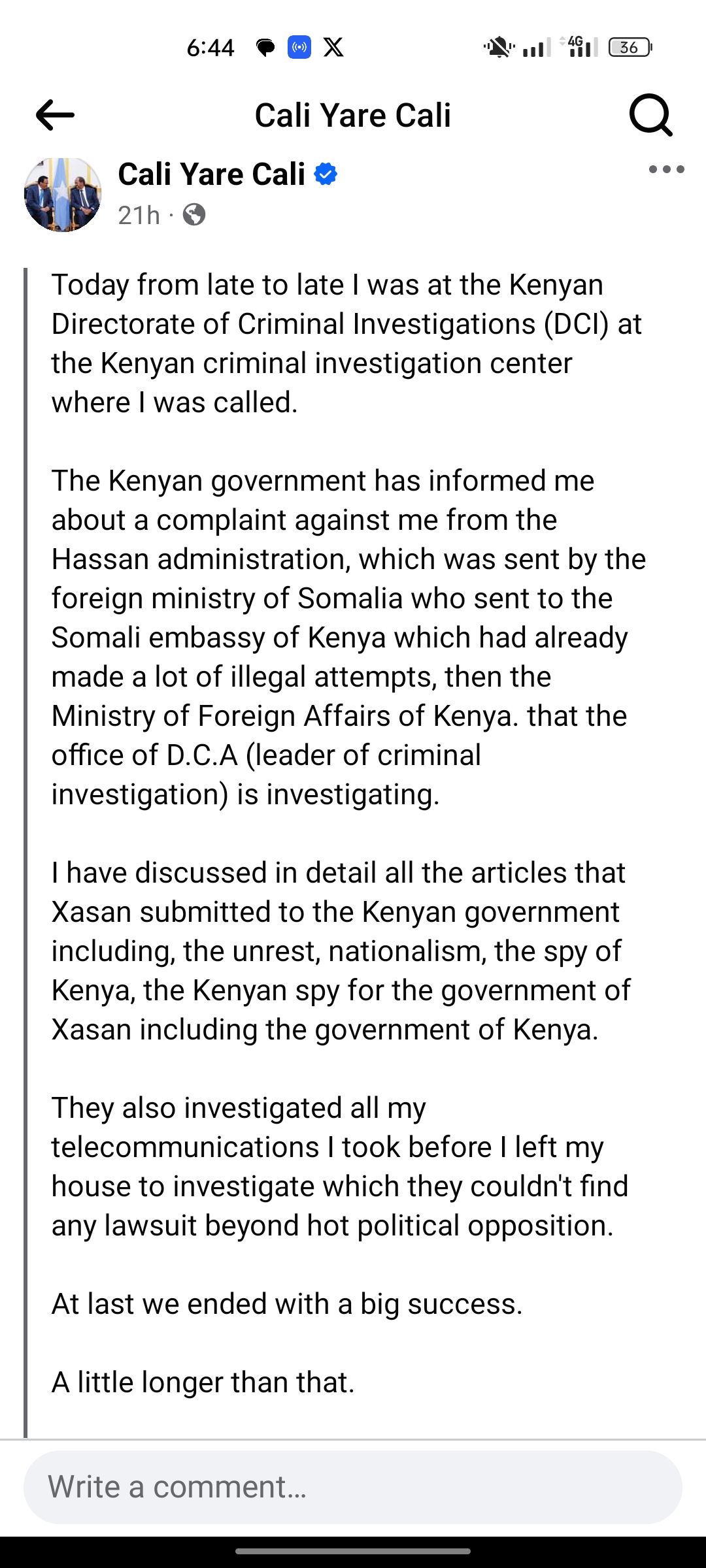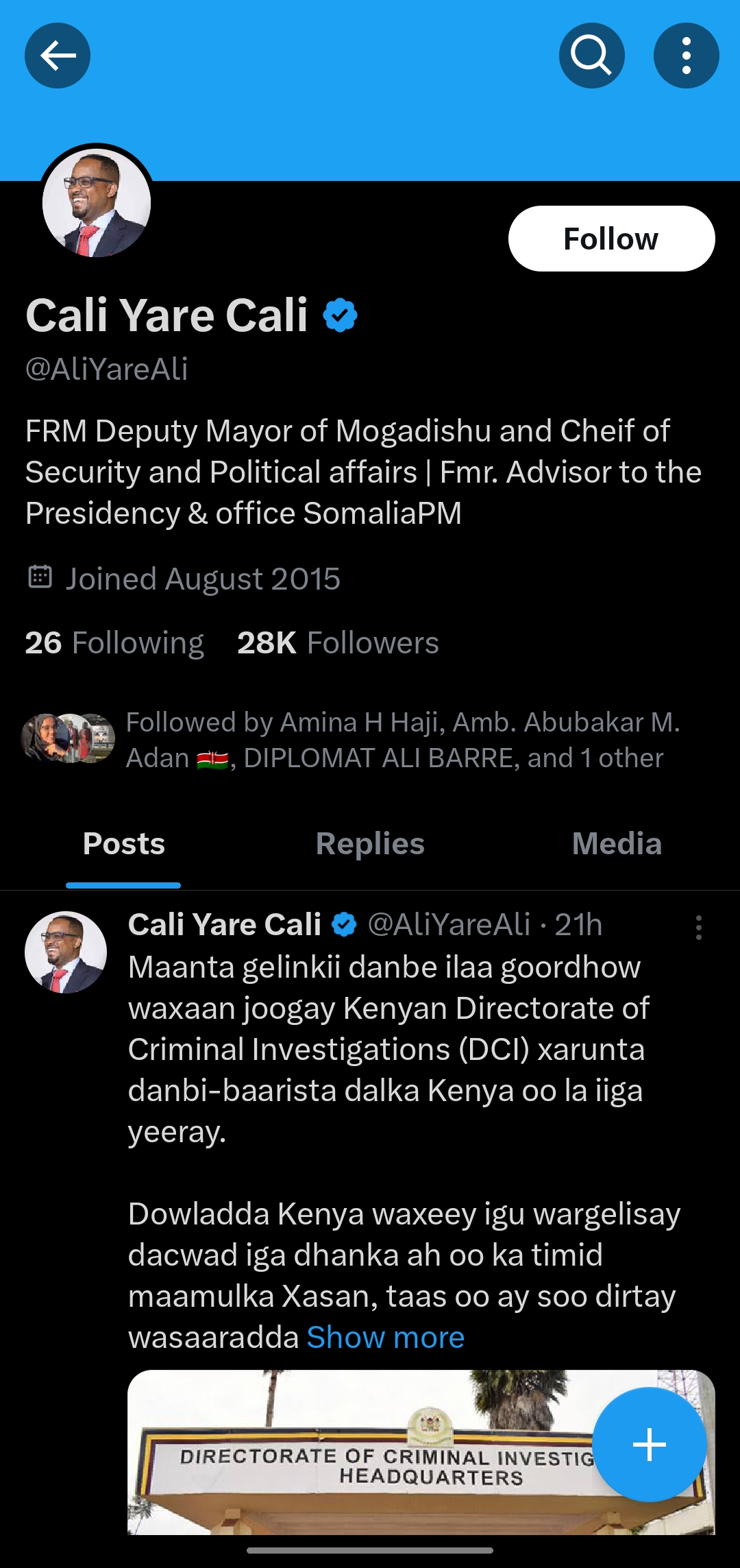The Somali Embassy in Kenya has found itself at the centre of a growing political controversy, with serious allegations emerging from Somali politicians and members of the diaspora.
The claims against the country’s Nairobi embassy, which requires neutral representation of Somali interests abroad, include; engagement in efforts to silence dissenting voices within the Somali community in Kenya.
Two members of the Somali Parliament, Hassan Abdi Nur and Koshin Mohamed have publicly accused the embassy of colluding with Kenyan intelligence to intimidate them during their recent visit to Nairobi.
Mr. Hassan Abdi Nur recounted a harrowing experience where he and his colleague were allegedly detained and mistreated by Kenyan intelligence officers for several hours.

Nur claimed this ordeal was part of a broader political strategy orchestrated by the Federal Government of Somalia (FGS) to silence opposition figures, utilizing the embassy as a tool for political repression.
“We were held hostage and mistreated at the behest of the Somali government,” Nur stated.
“This kind of behavior is unacceptable and goes against diplomatic norms,” he added.
The controversy has drawn attention to the embassy’s role in Somali politics.
They are concerned, whether diplomatic missions should engage in internal political matters.
They claim that the mission, which should be focused on fostering bilateral relations and providing support to Somali citizens in Kenya, has instead become an instrument of political control.
The politicians allege that the embassy is actively working to suppress critics of the Somali government, employing tactics that range from withdrawing consular support to discouraging media engagement by those who oppose the current administration.
The controversy has sparked a broader debate about the role of diplomatic missions and the limits of their influence.
The Right to Dissent
Ali Yare Ali, the former Deputy Governor of Mogadishu, said in any political system, dissent is a vital component of healthy democratic discourse.
He said the ability to criticize and hold leaders accountable is foundational to the principles of democracy.
He said the Somali Embassy is systematically marginalizing dissenting voices within the Somali community in Kenya.
He said the actions are concerning and could lead to the erosion of democratic values and the implications for political freedoms within the diaspora.
The politician has come forward with serious allegations against the Somali government, claiming that he was recently summoned by the Kenyan Directorate of Criminal Investigations (DCI) over charges that he describes as politically motivated.
The charges, which include accusations of subversion and espionage on behalf of Kenya, were reportedly initiated by the administration of Somali President Hassan Sheikh Mohamud and communicated through Somalia’s Ministry of Foreign Affairs.
In a post shared on X (formerly Twitter), the politician, Ali, revealed that he was notified of a case against him instigated by the Somali government.
“I was informed of a case against me instigated by the Somali government,” Ali tweeted.
He further explained that the DCI had been tasked with investigating these claims, but no incriminating evidence was found during a search of his electronic devices.
Ali strongly refuted the charges, labeling them as baseless and politically driven.
He expressed particular concern about what he described as multiple assassination attempts orchestrated by the Somali government.
According to Ali, these attempts included the spread of false reports about his death on social media, which he believes were part of a broader effort to silence him.
“Thanks be to God who foiled their plot,” Ali tweeted. “Kenya is a democratic country that I like to thank.”
As of the time of publication, neither the Somali Embassy in Kenya nor the Federal Government of Somalia has issued a public response to these serious allegations.
The silence from Somali authorities has only added to the speculation and concern surrounding the case.
The allegations made by Ali add a new layer of complexity to the already tense relationship between the Somali government and its critics, particularly those in the diaspora.
Diplomatic Overreach?
Embassies are typically seen as protectors of their citizens’ rights and interests abroad, offering support and serving as a bridge between the host country and the home nation.
The allegations against the Somali Embassy, however, have led to questions about whether the mission is misusing its diplomatic powers to serve a narrow political agenda.
Critics argue that such actions, if true, would constitute a serious breach of diplomatic norms and could damage the embassy’s credibility as a neutral entity.
Suleiman Ahmed, a member of the diaspora, has expressed concern that the embassy’s actions could deepen political divisions and undermine trust between Somali citizens and their government.
“Transparency is crucial in this context, as citizens have a right to understand the motivations behind their embassy’s actions,” he said.
He said should the claims of suppression prove to be accurate, “they are calling for accountability and reform.”
Mr. Suleiman said if the claims are substantiated, they could have far-reaching implications for Somali politics, both in Kenya and Somalia.
Want to send us a story? Contact Shahidi News Tel: +254115512797 (Mobile & WhatsApp)



